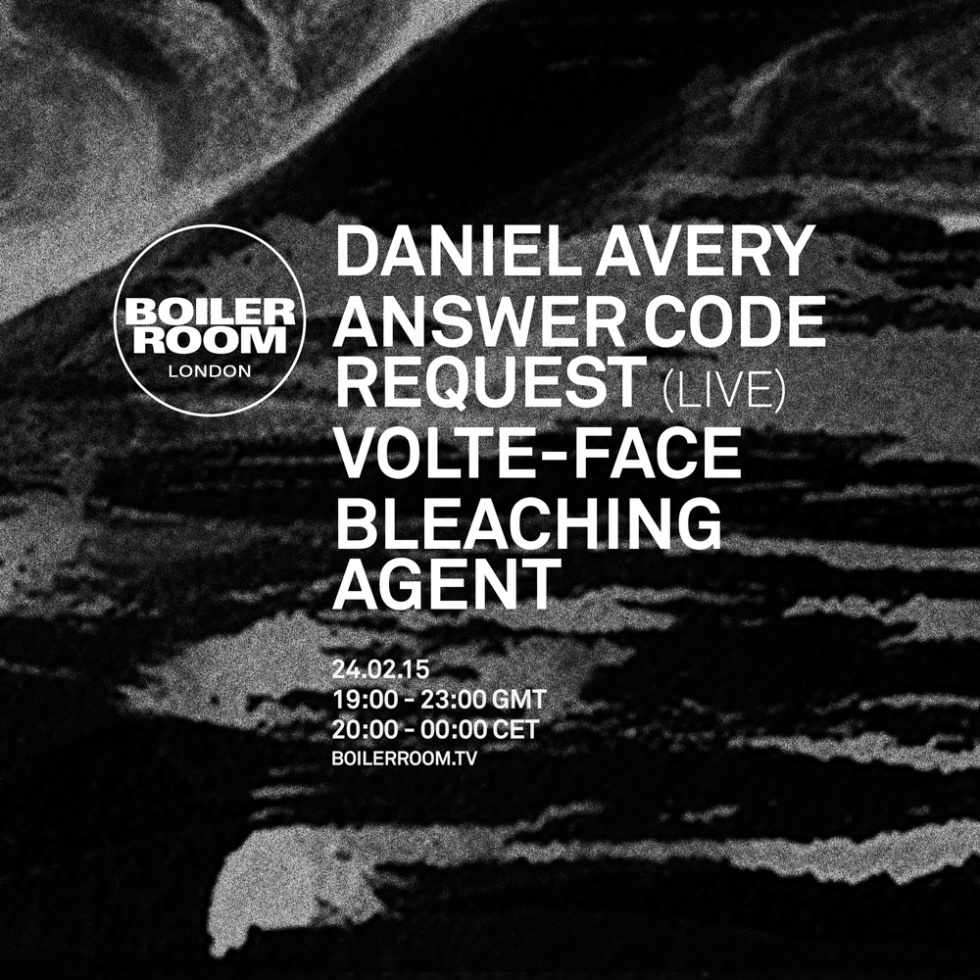
En route through the East India Docks on a bracingly cold February morning, I’m apprehensive. Part of that stems from my surroundings, an incongruous mix of post-regeneration duckpond prettiness and grim construction yards. Buttressed by two hulking monuments to commerce – Canary Wharf behind, and a dazzlingly bright Dome in clear view ahead – it’s not the most obvious setting from which to derive creative juice. Frankly, shaking the received wisdom that this used to be the absolute arse-end of London is hard: it’s had a lift, but still bears pockmarks.
No, it’s more Daniel Avery himself that’s causing unease. I can’t get a read on how our day together is going to pan out. Several phases past the initial come-up, he is unquestionably big business nowadays. Drone Logic romped home during end-of-year season in 2013, picking up top-tier nods from DJ Mag, The Quietus, Dummy, Rough Trade, Phonica and The Guardian. On the closing night of Primavera, adjacent to our waterfront Bowers + Wilkins tent, he could be found shelling down acid bombs as the sun rose on a new week. His solo productions and the plethora of big-name remixes haven’t found their way off dancefloors for years. The truism holds firm: you’re never more than 6ft away from an Avery track.
And yet…he’s the boy from Bournemouth who cut his teeth in the sloppy world of electroclash and post-punk revivalism, jovially admonishing Matt LeTissier’s cultured left foot. He’s a million miles from the ten-a-penny tech house bores sloping off the production line and into 1am slots. He’s not even a big bad Wolfers or an acerbic Albini, someone who would call bullshit at ten paces and have the wood-chipper warmed on arrival.
So why fret?
“I put so much effort into every part of what I do: from artwork and videos to the music itself, to my own night and even lineups I play on”
A refreshing lack of deference permeates through UK techno; on balance, it’s a great thing. The downside of a scene that has its hand in its pocket primed and ready to flip the bird is that ambition can be misconstrued as posturing, confidence as cocksurety. Nowadays you can find former bastions of British steel resplendent in Burzum-Bambi tees, doling out hardware bombast to (admittedly perplexed) arenas. Anything goes, and absurdity reigns.
Avery is more guarded, studious and honed in on the long game. He litters conversation with words like “belief”, “inspiration”, what things fundamentally “mean” – mantras more frequently associated with denizens of the D – and is at pains to triple-underline the importance of everything being in its right place. “I put so much effort into every part of what I do: from artwork and videos to the music itself, to my own night and even lineups I play on,” so to his mind it’s wholly justifiable that he show due diligence in “how I come across, too.”
His sense of purpose marks him something of an outlier, and the quintessentially English kneejerk reaction is a raised red flag. It triggers tiny reminders of something I read about pre-College Dropout era Kanye – although obviously this is a million miles from Ye’s attempts to strongarm a narrative and set in motion the career he’d already internally mapped out (that said, picturing how an Avery red carpet rant might look in 2025 is gold).
That recoil needn’t be the case. Daniel Avery is merely an artist boasting an unusual degree of control of their own situation. But with a series of club residencies in his own name dotted around Europe picking up speed, an imminent remix compilation adding to the mounting pressure for a sophomore success, and a rise into the big leagues showing no sign of abating, how much longer can he keep hold of his enigmatic status?
✦ ✦ ✦
“I feel like I’m just getting warmed up.”
We meet in the converted quayside lockup that Avery calls both studio and a sort-of home for several days a week. The finishing touches were applied to Drone Logic here, although it was more a “white box” then, which he has gradually made his own. There’s the same sense of ownership a student might have on their first flat rental; cutesy adornments and framed mementoes trussing up the place. A collection of Lester Bangs’ reviews sits atop Krautrock retrospective Future Days – “not quite an Energy Flash, but it’s pretty good,” he quips.
The entire left wall is dominated with racks of gear: guitar amps and compressors; 303s and TR-808s; a Prophet ’08 and a Mono/Poly; plus a vintage Roland JX-3P, which he explains is “very good for pads, especially run through a chorus echo and tape delay. It gives a real warmth and euphoria to things.”
Warmth and euphoria are typical signifiers of Avery’s sound, along with sonar beeps, disembodied voices and a slightly swollen, twisted pulse coursing throughout. There’s a sly groove to his particular brand of techno, replacing the more commonplace cudgel to the cranium. It’s quite a tricky style to accurately pinpoint, but you know an Avery production when you hear it. Andrew Weatherall‘s offhand one-liner – “gimmick-free machine funk of the highest order” – is just about as close as anyone’s come.
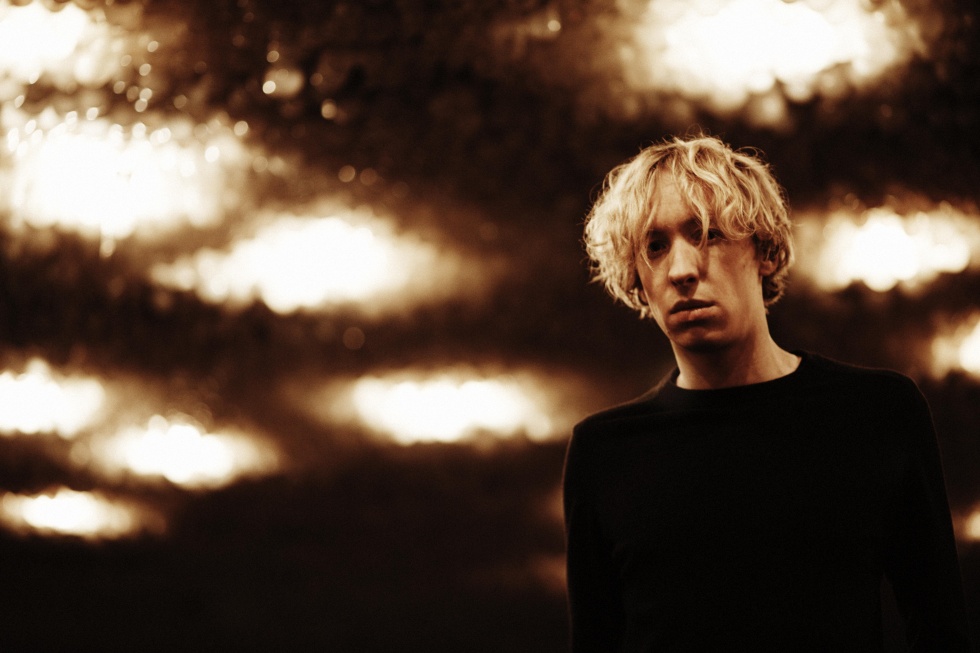
Given the imminent release of double-LP compilation New Energy, a clutch of “truly incredible” remixes that “deserved respectful collation”, thoughts are turning to the next full-length statement. Avery insists he’s in no rush to follow up, but his restless excitement belies that stock response. Either way, fresh material should be coming “at club level” on a 12″ or EP later this year.
With a clear strategy to avoid deviation, and instead build and progress upon a debut he remains pleased with, three parts of Drone Logic that were “merely touched upon” will be foregrounded on the follow-up: the mechanical undercarriage (no surprises there); a kind of oily, “trippy psychedelia” (he draws for “the warmth of a subby kick drum” as an example of “music you can get lost inside”); and more ambient textures.
Of the pre-mixdown demos I get to absorb – all resting in a private Soundcloud playlist, where amusingly every track has its own peripheral Simpsons character as placeholder art – one track stands out farthest, weaving together strands of all the above. Twinkling synth lines skirt across a polished chrome surface, evoking SAW-era Aphex, or the finery of Christian Löffler. That pulse remains, but has been powered down considerably, flickering only gently. “I feel like I’m just getting warmed up,” he beams.
Avery actively rejects the description of his music as ‘dark’ – although frazzled tearouts by the likes of Ricardo Tobar and Perc on New Energy certainly dip their toes – but even so, some of the new material represents a striking about-turn from what came before; or what people might tacitly assume lies ahead.
As a reflection of the soft morning light he’s become increasingly used to through the rigours of international touring, though, it makes sense in context.
✦ ✦ ✦
“Everything is clicking together”
There’s a nagging deja vu when it comes to the associations that float around Daniel Avery, even to the untrained eye. From repaid favours to forthcoming all-nighters with the same DJ who remixed material as far back as 2012, everything seems to cycle round and feed back into itself in a rather pleasing fashion. If the amalgamation of his various creative impulses as an artist feels like a hybrid between an Ourobous and a Hydra, this is closer to an alignment of planets.
Somewhat unsurprisingly, it’s purposeful. “Things orbiting each other is an interesting analogy; it does feel that everything is clicking together. There’s definite lines to be drawn.”
Take the Weatherall-Alkan-Fairplay axis that has been crucially important from the outset of Avery’s breakout. Over the years, the trio have played “enabling” roles in the studio, traded edits, provided leg-ups and teamed for any number of b2b sets. More recently, a second solar system has developed, with BleeD founder Casper (aka Volte-Face) and noiseniks Factory Floor two of the most prominent recurrent figures.
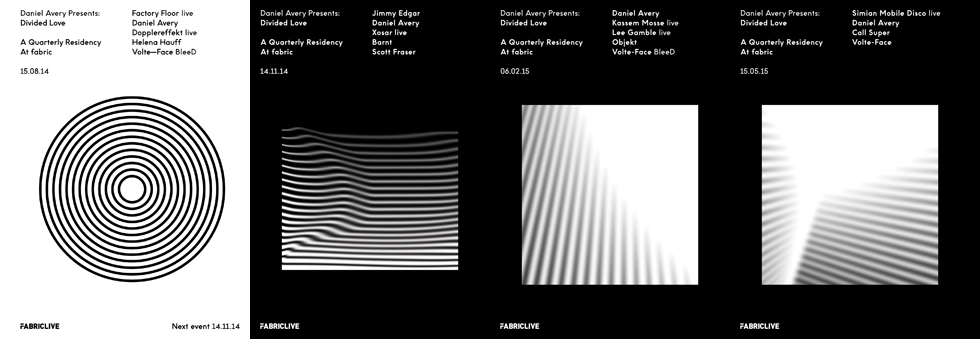
Divided Love – itself yet another example of continuity, sharing a name with an old cassette, as well as the same initials as his debut – is the next logical step in shrinking any distance between the celestial bodies in Avery’s universe. A longstanding resident at Fabric, as well as the sixty-sixth inductee in their mix series, when the opportunity came last June to not just top a line-up, but actually cultivate and shape one, there was no question he would grip it with both hands.
“I think that’s indicative of what makes the place special as an institution,” he says. “They really support underground acts that they believe in in a big way,” writ large “every weekend.” Each of the three ‘Quarterly Residencies’ in the capital have sold out; the most recent, boasting the likes of Kassem Mosse, Objekt, Lee Gamble as well as Daniel and Casper, is just about the best single-room bill you’re likely to come across right now.
Rifling through fixed artwork and loose plans for the year ahead, Avery positively brims with pride. Paris, Lisbon and Lyon may not be oceans apart, but for a man so rigorous in his top-down vetting process, each expansion of his comfort zone’s parameters feels notable. “The only places I’m going to do Divided Love moving forward are ones that I already know, love, and feel a connection with.” Hosting a stage at Nuits Sonores is the ceiling in terms of exporting the ‘brand’, mind. “Both the city and the festival have built up so much for me in recent years. That was a no-brainer; a real honour. I doubt we’ll see a Divided Love festival any time soon” – he pauses with a knowing grin – “unless it was absolutely perfect.”
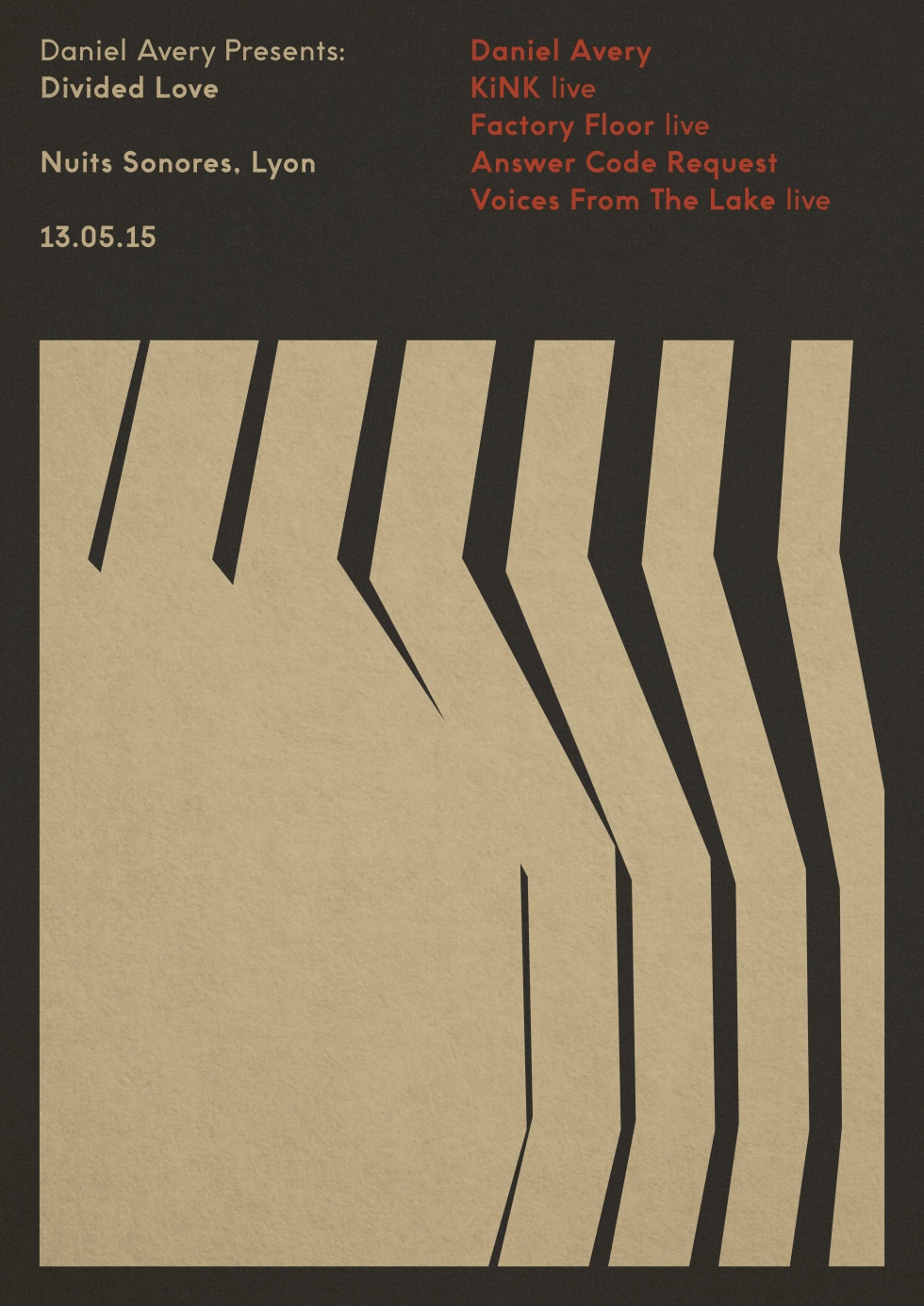
Avery remains remarkably sanguine about juggling all this. If anything, he’s pushing for yet more integration, and is cognisant of missed opportunities along the way. His brow furrows when recanting how Helena Hauff and Xosar – who played the first and second edition of Divided Love, respectively – were both tapped for New Energy remixes before time ran away. “I’m electrified by it all, and I don’t see them as different strands. It all feels part of the same thing”
His investment in the artform, and club culture more broadly, runs marrow-deep. When it comes to taking bookings, he weighs the odds and stacks the variables in the same way a professional poker player might. He acknowledges fixing upon the right support for regional shows isn’t always possible, but nonetheless it can sway his decision. “Sometimes things just don’t make sense.”
“Crowds are really good at the moment; they get it.”
It’s valid to say he may be precluding any challenge to his sensibilities. System shocks can be a healthy thing now and again. He nods, citing the aforementioned Primavera slot an an example of an initially uncomfortable situation that came good. Festivals, though, are different beasts. “I’m so keen to make sure the nights I’m part of, Divided Love or otherwise, work as a whole. Decisions can be made to completely change the atmosphere of a room really quickly.”
“In the same way that I personally like to surround myself with like-minded people – to not just listen to their records but actively lock into their world – I extend that to those who come and see me play. Crowds are really good at the moment; they get it. A night out is a communal thing between the DJ and the people there.” He sees himself as something of a sentinel, bound to protect and serve that relationship; being cavalier simply isn’t in his nature.
Now in his 11th year of DJing professionally, could the dramatically upscaled workload of curation prove detrimental to putting the same care and consideration into his own sets? “I definitely make time,” he bats away. “The question I get asked the most is: “When’s the live show ready?” I find that a bit frustrating. For me, DJing should never be a stopgap until your live show is ready.”
“I’m enjoying DJing way more now than I ever have done.” The grin creeps back onto his face. “I feel buoyed by a lot of things at the moment.”
✦ ✦ ✦
“Being surrounded by interesting people is one of the most important things in life.”
You may have caught wind that the ‘Daniel Avery’ I sketched out earlier – aloof, impenetrable, fervent – isn’t the whole story. It was my first impression, but was a portrait pieced together by various fragments of data littered along the way, half-recalled but fully shaped to fit a narrative. This kind of rushed characterisation is something the real Daniel Avery – affable, witty… and okay, a little fervent – takes extremely seriously; and understanding this goes some distance to explaining his motives and his movements.
“I am very conscious of how you can represent yourself, especially in today’s world,” he reasons. “People haven’t got time to compute every bit of information, so they just glean things off.” It’s an interesting thought: when your name carries weight and is burdened by suppositions, it becomes an individual avatar, taking on its own form. Avery doesn’t necessarily feel he’s up against earlier incarnations of himself, but has a shield in place nonetheless.
His return to Boiler Room next week was borne of an old set that exactly didn’t play to his strengths, yet was one of the very first available results on a search engine; we offered him a chance to right the wrongs by doing something better, this time on his terms.
“I don’t think the raw first blast of an idea is always the best one.”
That caution extends to his creative process, too. “Take PC Music. People were saying the second it goes online or gets put in a record shop, it’s dead to them; throwing your initial ideas out there is the thing. I could not be further at the other end of the spectrum. Music and art can be spontaneous, but it has to be considered.” I counter with the Messthetics movement that Avery is fond of, a gatling gun of intellect splayed out without being anywhere near to its final form (or, for that matter, ever bothering to settle on one outright.)
He demurs: “I don’t think the raw first blast of an idea is always the best one. Someone like Four Tet seems to be overflowing with ideas, churning amazing stuff out all the time, and I think that’s great. But it’s not how I’m able to work.”
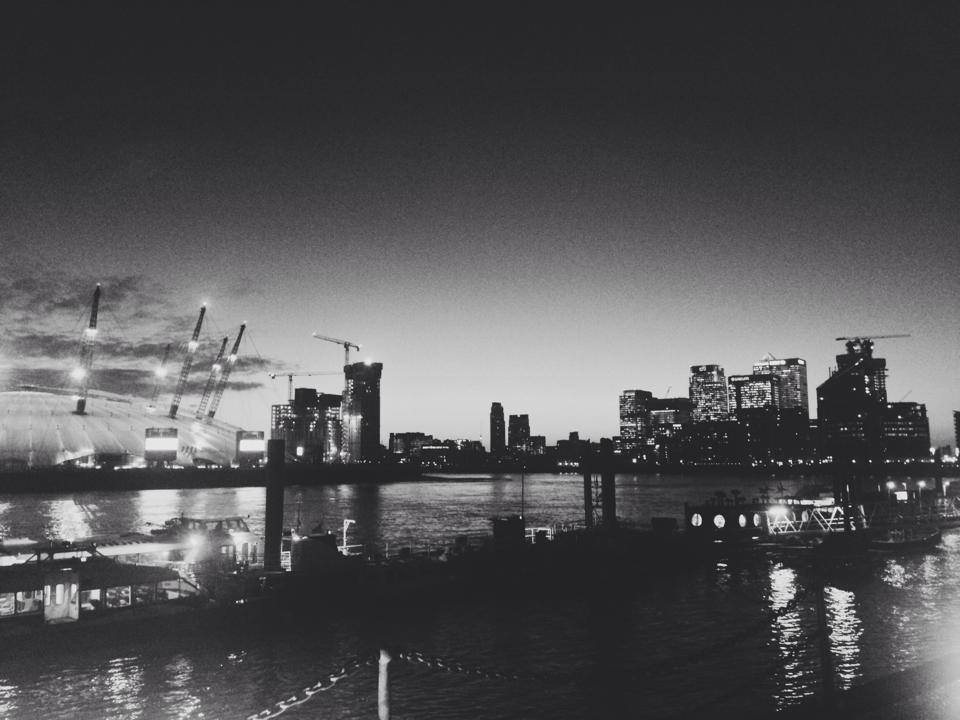
Moving out of Avery’s container space and into a nearby diner for lunch, we chew the fat over a range of topics: how distance and time alters the perception of ‘youthquakes’ like punk and acid house; the upcoming UK elections and the socioeconomic effects of depleted arts funding; and an alarming culture of polarisation.
“Conversation’s being replaced by aggressive argument. The whole fucking idea of clickbait right now is so damaging. So damaging to everything.” The more this desperate reduction to the lowest common denominator, a zero-sum race to the bottom, takes hold, the more it calcifies “being antagonistic, or having an extremely strong opinion. I think it’s just ridiculous. I don’t want any part of that world.”
Much like the absence of darkness or paranoia in his music, one reason to have ‘Love’ in the title of his clubnight was a meaningful attempt to counter the stream of negativity in day-to-day life. “As much as you possibly can, don’t be surrounded by people who bore you or who you don’t believe in. For me, being surrounded by interesting people is one of the most important things in life.”
Music aside, community is perhaps the single most important driving factor in Avery’s life. It’s an ever-present constant. Avery’s first encounter with Andrew Weatherall’s Two Lone Swordsmen came via a mix CD put together by Death In Vegas frontman Richard Fearless, something he extolled on the infamously fertile Erol Alkan forum during the mid-00s. And now? Alkan accompanies him in the studio, Weatherall is a regular cohort behind the decks, and Fearless works next door. “That these people who I grew up listening to can be counted as friends as well as continued sources of inspiration – well, yeah, I feel fortunate in that regard.” The progression isn’t lost.
He draws considerable charge from familiarity, and seeks to further that in every place possible: from the minute fluxes that dictate the rhythm and flow of a night out, to infusing enough compassion at the mixing desk that his tracks may go on to create some wider harmony down the line.
All the various lines intersect, forming a latticework that not only supports, but spurs him on. “It’s the most exciting time I’ve ever personally lived through with electronic music. There are so many things informing and shaping other genres. I don’t know why; sometimes stars align at certain times.”
As we pick up the tab, Avery pauses for a final moment of reflection.
“From where I’m standing – nestled within various booths – it’s looking pretty good out there.”
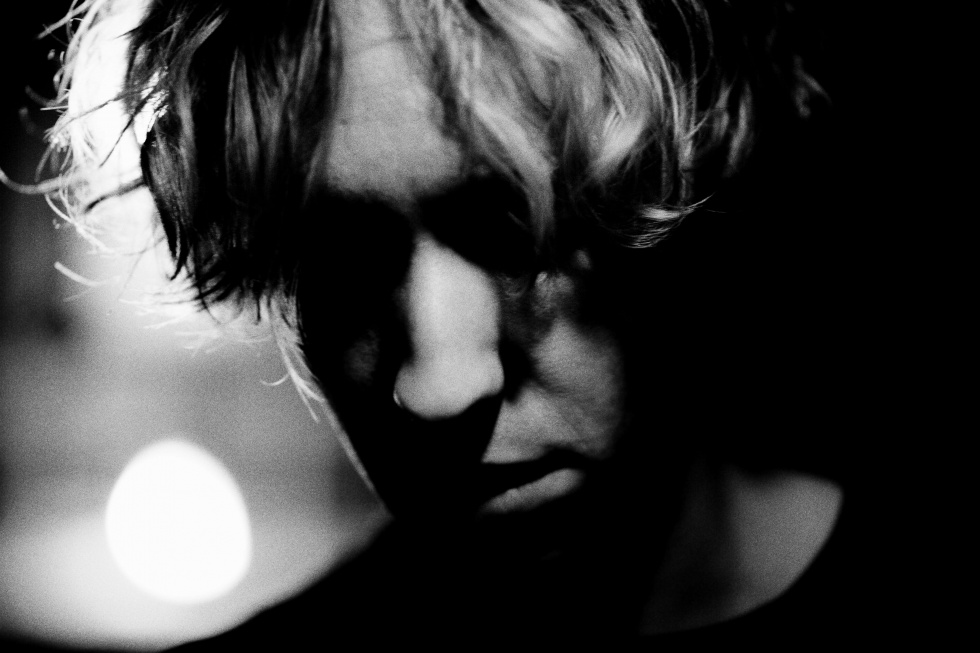
Daniel Avery plays Boiler Room next Tuesday (24.02) alongside Answer Code Request, Volte-Face and Bleaching Agent; more info here.
Photos by Steve Gullick & Daniel Avery | New Energy can be bought digitally here & physically pre-ordered here | Answer Code Request plays Fabric on March 7th.